![]()
Tue, Aug 30, 2011 | WikiLeaks
WikiLeaks: China’s approach to Iran’s nuclear (weapons) program triggers concerns
Summary: China counsels continued patience on the Iran nuclear issue because it seeks a “thorough solution” to the problem, and it supports the removal of all 1200kg of low-enriched uranium from Iranian soil. According to a Chinese contact, new sanctions, would have a negative effect on Iranian cooperation with the international community. He suggested that internal political pressure on Iranian President Ahmadinejad increases the incentive for returning to negotiations, and claimed that Ahmadinejad still enjoys the full support of Supreme Leader Khamenei. He acknowledged that China is receiving expressions of concern on the nuclear issue from Middle Eastern diplomats, but a contact at the Israeli Embassy claimed that Beijing was entirely dismissive of these concerns.
Chinese academics are deploying a range of arguments against new UN Security Council sanctions against Iran, but some contacts say China will not go it alone in opposing them. A well-placed think-tanker argued that Iranian political divisions could result in favorable changes to the nature of the Iranian regime; sanctions would play into the hands of the hard-liners and would be ineffective in any case. Another academic stressed that uranium swap proposals are the starting point for building mutual trust, and thus the P5-plus-1 should not be overly concerned about the details. He claimed that Saudi and Israeli interests on the issue were fundamentally different. Our contacts downplayed Iran’s technical progress, said that Beijing had to consider Iran’s importance in the Islamic world given China’s vulnerability over treatment of its Muslim minority, and speculated U.S. arms sales to Taiwan could impact Chinese cooperation on Iran. A well-placed media contact said that Chinese concerns about provoking an anti-China backlash in the U.S. Congress would, in the end, deter China from taking action that could be perceived as enabling an Iranian nuclear weapons program. A scholar close to the PLA (China’s Military Organization) also claimed China would support new sanctions against Iran, arguing that regional instability concerns trumped the Taiwan arm sales China-Iran relations.
Source: WikiLeaks
Reference Created Classification Origin 10BEIJING293 2010-02-04 11:22 CONFIDENTIAL Embassy Beijing
VZCZCXRO5996
OO RUEHBC RUEHCN RUEHGH RUEHKUK RUEHTRO
DE RUEHBJ #0293/01 0351122
ZNY CCCCC ZZH
O 041122Z FEB 10
FM AMEMBASSY BEIJING
TO RUEHC/SECSTATE WASHDC IMMEDIATE 7925
INFO RUEHOO/CHINA POSTS COLLECTIVE PRIORITY
RUCNIRA/IRAN COLLECTIVE PRIORITY
RUEHBR/AMEMBASSY BRASILIA PRIORITY 0007
RHEHNSC/NSC WASHDC PRIORITYC O N F I D E N T I A L SECTION 01 OF 02 BEIJING 000293
SIPDIS
E.O. 12958: DECL: 02/04/2035
TAGS: PREL PARM ENRG PTER MNUC IR CH BR
SUBJECT: PRC/IRAN: BEIJING CONTINUES TO CALL FOR PATIENCEREF: A. BEIJING 269
¶B. BEIJING 209
¶C. BEIJING 145Classified By: Political Minister Counselor Aubrey Carlson.
Reasons 1.4 (b/d).¶1. (C) SUMMARY: The PRC counsels continued patience on the
Iran nuclear issue because it seeks a “thorough solution” to
the problem, and it supports the removal of all 1200kg of
low-enriched uranium from Iranian soil, according to an MFA
contact. PRC officials have urged Iranian counterparts in
recent months to accept the Tehran Research Reactor (TRR)
proposal and other P5-plus-1 overtures, and the Iranians have
indicated interest in re-opening discussion of the details of
these agreements, according to the MFA. New sanctions,
however, would have a negative effect on Iranian cooperation
with the international community, our contact claimed. He
suggested that internal political pressure on Iranian
President Ahmadinejad increases the incentive for returning
to negotiations, and claimed that Ahmadinejad still enjoys
the full support of Supreme Leader Khamenei. He acknowledged
that China is receiving expressions of concern on the nuclear
issue from Middle Eastern diplomats, but a contact at the
Israeli Embassy claimed that Beijing was entirely dismissive
of these concerns. END SUMMARY.¶2. (C) In recent MFA press conferences, PRC officials have
expressed China’s opposition at present to new sanctions to
deal with the Iranian nuclear issue, calling instead for
“flexibility and a pragmatic approach” from the international
community (reftels). PolOff met with MFA West Asian Affairs
Department Iran Division Deputy Director Ni Ruchi February 3
to discuss the issue.PRC Seeks Continued Patience and “Thorough Solution”
——————————————— ——-¶3. (C) Clarifying these calls for flexibility, Ni said that a
single year of the new approach from the Obama administration
was not enough time to overcome 30 years of enmity between
the U.S. and Iran. He stressed the importance of slowly
building mutual trust, and estimated that another 6-12 months
would be needed to bring the Iranians around to agreeing to
take concrete steps on the nuclear program. He said that the
PRC sought a “thorough solution” to the nuclear issue through
improving mutual trust between Iran and the United States and
Europe, and called the U.S.-Iran relationship the “major
obstacle” in this process.PRC: Sanctions Risk Increasing Iranian Defiance
——————————————— —¶4. (C) Ni claimed that based on his conversations with
Iranian officials, he thought Tehran would not likely yield
in the face of tougher sanctions from the P5-plus-1, but
would instead react negatively by curbing cooperation with
the international community. He acknowledged that some
pressure was needed to make the choice clear for Iran, but
had no suggestions to offer on what kind of pressure the PRC
could support in lieu of multilateral economic sanctions.
PolOff stressed the importance of fully using the dual-track
approach, including increasing pressure through meaningful UN
Security Council action, in order to persuade Iran to take
the path of engagement with the international community.PRC Pushing Iran to Allow Uranium to Go Abroad
——————————————— –¶5. (C) Ni argued that PRC efforts to keep the Iranians
engaged with the P5-plus-1 had been intense in recent months.
He claimed that in addition to then-AFM (now-VFM) Zhai Jun’s
visit to Tehran in November, MFA West Asian and African
Affairs Department Director General Song Aiguo had met with
his counterparts in Tehran the week of January 25 to urge
flexibility on the nuclear issue and a return to negotiations
with the P5-plus-1. He said the Iranians told the PRC
delegations that they had not fully rejected negotiations
with the P5-plus-1 and were willing to discuss ideas for
processing LEU currently in Iran outside the country.PRC: Uranium Could Leave Iran in Tranches
—————————————–¶6. (C) According to Ni, the Iranians said that parameters for
discussion on uranium processing could include timing,
location, and moving the uranium out in tranches. The PRC
had noted the proposal from Turkey that addressed these
concerns, Ni added, and the Iranians had told their Chinese
counterparts that they were willing to accept the TurkishBEIJING 00000293 002 OF 002
plan. Ni claimed that for China, removing the 1200kg of
uranium from Iran for processing abroad remained the goal of
their engagement. He suggested the P5-plus-1 discuss with
the Iranians the details of uranium removal. He cautioned
that Iran would not entirely capitulate to U.S. and European
demands, but a compromise might be obtainable. Ni pointed to
comments made by President Ahmadinejad on Iranian television
February 2 indicating that he was not opposed to processing
Iranian uranium abroad in tranches. Ni suggested offering a
plan under which the Iranian uranium was exported in three
batches of 400kg each, while reiterating that removing all
1200kg from Iran remained China’s goal. PolOff stressed that
the TRR proposal presented to Iran accommodated Iranian
concerns, demonstrated flexibility, and gave Iran an
opportunity to show its peaceful intentions, and that the
terms Iran was floating would delay the transfer of LEU out
of Iran and not increase the confidence of the international
community.Internal Pressure is Incentive for Negotiation
——————————————— –¶7. (C) Ni said that China assessed that Ahmadinejad remained
under significant political pressure stemming from the June
2009 election and subsequent unrest. The political situation
remained complex, he added, but the state so far was still
able to keep the opposition movement fully under control. He
surmised that opposition activities would continue in the
coming months and suggested that such activities increased
Ahmadinejad’s incentive to negotiate on the nuclear issue,
because decreasing pressure on the nuclear issue would allow
Ahmadinejad to focus on strengthening his position
internally. Ni assessed that Ahmadinejad continued to enjoy
full support from Supreme Leader Khamenei.Little Urgency over Regional Dimension
————————————–¶8. (C) Israel, Saudi Arabia and other regional actors had
expressed serious concern to the PRC over the Iranian nuclear
program and its implications for regional security, Ni
reported. Without acknowledging the legitimacy of these
arguments, Ni said that the PRC had stressed to these
interlocutors the importance of increased transparency from
the Iranians to make clear their intentions in developing
nuclear technology. He noted that Iran’s cooperation with
the IAEA had been “generally good,” but was unsatisfactory in
some areas, and Beijing had told the Iranians that they
should discuss these areas with the P5-plus-1. Ni argued
that if Iran were interested in weaponizing its nuclear
technology, it would do so in secret, but the fact that the
regime made a public display of its progress in the nuclear
field argued for its peaceful nature.Israeli Contact: PRC Dismissing Concerns from the Region
——————————————— ———–¶9. (C) Israeli EmbOff Guy Kivetz told PolOff February 2 that
his Embassy had regularly over the last year articulated to
PRC interlocutors Israeli concerns over the Iranian nuclear
program and its profound implications for security in the
Middle East. He said that PRC interlocutors had never
acknowledged the validity of this line of argument, but in
recent months had become entirely dismissive of the argument.
He said that PRC officials were convinced that Israel was
overstating the level of concern over the issue and
internally the PRC was rejecting the conclusions of
intelligence provided by Israel and other countries about
Iran’s technical progress on the nuclear program. He said
that PRC policy-makers were convinced that no country,
including Israel, was in a position to respond with force to
Iran’s development of nuclear technology and had likely
concluded that the development by Iran of nuclear weapons was
acceptable.Chinese Outreach to Brazil
————————–¶10. (C) Brazilian Embassy Second Secretary Henri Carrieres
told PolOff February 4 that PRC officials had met with
Brazilian counterparts in recent weeks to articulate strong
PRC opposition to additional sanctions at this time,
including during a visit to China of Deputy Foreign Minister
Roberto Jaguaribe February 2. Carrieres declined to detail
whether China directly sought support in the UNSC from
Brazil, currently a non-permanent member, to prevent a
sanctions resolution from succeeding.HUNTSMAN
Source: WikiLeaks
Reference Created Classification Origin 10BEIJING355 2010-02-10 09:42 CONFIDENTIAL Embassy Beijing
VZCZCXRO0331
OO RUEHBC RUEHCN RUEHGH RUEHKUK RUEHTRO
DE RUEHBJ #0355/01 0410942
ZNY CCCCC ZZH
O 100942Z FEB 10
FM AMEMBASSY BEIJING
TO RUEHC/SECSTATE WASHDC IMMEDIATE 8062
INFO RUEHOO/CHINA POSTS COLLECTIVE PRIORITY
RUCNIRA/IRAN COLLECTIVE PRIORITY
RUEAIIA/CIA WASHINGTON DC PRIORITY
RHEHNSC/NSC WASHDC PRIORITYC O N F I D E N T I A L SECTION 01 OF 03 BEIJING 000355
SIPDIS
E.O. 12958: DECL: 02/10/2035
TAGS: PREL PARM ENRG PTER MNUC IR CH
SUBJECT: PRC/IRAN: BEIJING’S PROLIFERATING ARGUMENTS
AGAINST SANCTIONSClassified By: Political Minister Counselor Aubrey Carlson.
Reasons 1.4 (b/d).¶1. (C) SUMMARY: PRC academics are deploying a range of
arguments against new UN Security Council sanctions against
Iran, but some contacts say China will not go it alone in
opposing them. A well-placed think-tanker argued that
Iranian political divisions could result in favorable changes
to the nature of the Iranian regime; sanctions would play
into the hands of the hard-liners and would be ineffective in
any case. Another academic stressed that uranium swap
proposals are the starting point for building mutual trust,
and thus the P5-plus-1 should not be overly concerned about
the details. He claimed that Saudi and Israeli interests on
the issue were fundamentally different. Our contacts
downplayed Iran’s technical progress, said that Beijing had
to consider Iran’s importance in the Islamic world given
China’s vulnerability over treatment of its Muslim minority,
and speculated U.S. arms sales to Taiwan could impact PRC
cooperation on Iran. A well-placed media contact said that
Chinese concerns about provoking an anti-China backlash in
the U.S. Congress would, in the end, deter China from taking
action that could be perceived as enabling an Iranian nuclear
weapons program. A scholar close to the PLA also claimed the
PRC would support new sanctions against Iran, arguing that
regional instability concerns trumped the Taiwan arm sales
PRC-Iran relations. END SUMMARY.¶2. (C) In the wake of the January 29 announcement of U.S.
arms sales to Taiwan, PolOffs discussed the Iran nuclear
issue with MFA-affiliated China Institute for International
Studies (CIIS) Middle East Studies Center Director Li Guofu,
Ministry of State Security-affiliated China Institutes for
Contemporary International Relations (CICIR) Middle Eastern
Studies Director Tang Zhichao and researcher Tian Wenlin,
Communist Party-affiliated Global Times (English edition)
Managing Editor Zhang Yong, and PLA-affiliated China
Foundation for International Strategic Studies scholar Zhang
Tuosheng.Power Struggles among Iranian Leadership Continue
——————————————— —-¶3. (C) CIIS’s Li argued February 5 that the on-going struggle
for power among Iranian political elites, set into motion in
the aftermath of the June 2009 election, was an important
consideration in the PRC position on new sanctions. Li
claimed that, based on his conversations with Iranian
officials, there was vigorous debate within the “religious
structure of the government” (the Supreme Leader and the
Assembly of Experts) over the nature of the Islamic
revolution and the role of Supreme Leader Khamenei. This
division had widened since the 2009 election and threatened
the influence of the Supreme Leader. Khamenei remained
especially concerned about his position in light of the anger
felt by many Iranians at Khamenei’s direct interference in
the outcome of the 2009 poll, Li said.Khamenei, Green Movement Seeking Compromise?
——————————————–¶4. (C) Supreme Leader Khamenei was presently seeking a
compromise with the reformist camp in order to prevent
argument over his proper role from further spilling into
broader society, Li said. He observed that a majority of
Iranians today were under 30 and had strong nationalistic
tendencies, but also wanted to see progress on
democratization in Iran. They viewed the Supreme Leader as
flawed but acceptable given their nationalistic and religious
worldview. Li claimed that a new power-sharing compromise
between the Supreme Leader and the Rafsanjani camp was
beginning to emerge, and that the present time thus
represented a “sensitive moment” in Iranian politics.
Khamenei might be also looking for a way to quietly sideline
Ahmadinejad in order to protect himself, Li suggested. This
struggle within the religious branch was a long-standing one,
but the 2009 election had brought it to a new breaking point
that, coinciding with Obama’s engagement policy, provided
political space to elites in the system to debate the nature
of the Islamic Republic. Li added that this process was
largely opaque to outsiders and thus the outcome could not be
easily predicted.Sanctions Undermine Potential for Reform from Within
——————————————— ——-¶5. (C) Li said that China believed that, in light of this
volatile internal situation, a new round of sanctions against
Iran would empower the hard-liners and unite them andBEIJING 00000355 002 OF 003
reformists around a common cause. He claimed that not only
would sanctions be ineffective at increasing Iranian
cooperation on the nuclear program, but would thus also
undermine a process that could potentially introduce new
reforms aimed at redefining the role of the Supreme Leader.
He added that the Supreme Leader wanted to reduce pressure on
the regime by seeking a deal with the P5-plus-1 on the
nuclear program on Tehran’s terms, and Ahmadinejad needed a
deal to shore up his position as well.Iran Being Helpful; China Critics, Not So Much
——————————————— –¶6. (C) Li argued that Iran had “not yet totally rejected”
P5-plus-1 overtures. Tehran remained willing in principle to
move uranium out of the country, and Tehran’s positive
comments on a swap plan that would remove LEU from Iran in
tranches represented a significant step forward. Concerns
over timing and the amount of LEU to be removed in each batch
were technical issues that could be resolved through
discussion with the P5-plus-1. Claiming that China’s policy
was aimed at increasing the chances of meaningful political
change, Li said U.S. public comments that China was acting
irresponsibly in blocking efforts to sanction Iran hindered
cooperation on Iran. There was no reasonable target for
additional sanctions, in any case, since taking aim at the
energy sector would hurt all parties. He discounted the
possibility of military strikes in response to Iran’s
advancing nuclear technology, noting that Israel would
require U.S. approval.CICIR: Uranium Swaps Are a Starting Point
—————————————–¶7. (C) CICIR’s Tang February 8 said it was that unfortunate
P5-plus-1 efforts were becoming tangled with Iranian domestic
political considerations. He stressed that the original
Geneva proposal and the Iranian counter-offer were not
important in their own right but were a critical starting
point in the necessary and long process of building mutual
trust. The P5-plus-1 should not focus too closely on the
details of such proposals. Tehran remained interested in
Obama’s engagement policy and understood the potential
benefits it held for Iran’s development, he claimed.Further PRC Arguments against Sanctions
—————————————¶8. (C) Tang argued that while a new round of sanctions would
be easy to launch, the “side-effects,” which could affect the
PRC as well as other countries, would be difficult to
mitigate once a sanctions regime was in place. International
sanctions were ineffective at changing behavior in target
countries. The international community might be
underestimating the willingness of the Iranian regime to
endure pressure, given the long-standing bunker mentality of
the leadership and its ability to appeal to nationalism when
under pressure from the outside. Tang also argued that the
nuclear issue remained a technical one to be resolved through
the IAEA and within the framework of the NPT. CICIR
Researcher Tian argued that sanctions failed to address
Tehran’s primary concern, its sense of insecurity vis-a-vis
the U.S.Israeli, Saudi Views Are Not the Same
————————————-¶9. (C) Tang claimed that countries in the region held
different views on the Iranian nuclear issue. While neither
Israel nor Saudi Arabia, for example, wanted Iran to develop
nuclear weapons, the ideal outcome for Israel was one that
would draw the U.S. into deeper involvement in the region.
For the Saudis and other Arab states, however, their concern
over a nuclear Iran was balanced by concerns that the issue
would increase Israel-U.S. cooperation in the region and lead
to a regional conflict that would hurt their interests.Slow Technical Progress
———————–¶10. (C) On Iran’s technical progress, Li from CIIS asserted
that under current restrictions, it was difficult for Tehran
to obtain the material and technology necessary for its
nuclear program. The Iranian leadership had not yet decided
whether the nuclear program would be for purely peaceful
purposes in the long term, but understood that weaponizing
now, even if Iran had the technical capability, would not be
in Iran’s interest. Too much pressure from the international
community would push Tehran toward developing the militaryBEIJING 00000355 003 OF 003
side of its nuclear program, Li claimed.
PRC Also Considering China’s Image among Muslims
——————————————— —¶11. (C) Another factor Chinese policy-makers were taking into
consideration, Tang acknowledged, was the image of the PRC in
the broader Islamic world. He said that Beijing was keenly
aware of the importance of Iran in the Muslim world,
including within the Organization of the Islamic Conference,
which was powerful in shaping public opinion among Muslims
world-wide.Impact of Taiwan Arms Sale Difficult to Gauge
———————————————¶12. (C) Tang did not know what impact U.S. arms sales to
Taiwan might have on cooperation on the Iranian nuclear
issue. He did offer, however, that, unlike the Taiwan issue,
the PRC did not view the Iran nuclear issue as a “core
interest” and the leadership felt greater pressure than in
the past to make a tough response, which could include
“indirect” responses beyond mil-mil cooperation and related
fields. Beijing would consider this need to take firm action
in light of generally improved U.S.-China relations in the
last few years and the improving political situation across
the Taiwan Strait. Researcher Tian was more adversarial,
predicting China’s cooperation on Iran would be impacted by
the arms sale, especially given China had been “very
cooperative” with the U.S. on international security
questions overall.China Can’t Afford Angry Congress, Unstable Mid-East
——————————————— ——-¶13. (C) Zhang Yong, Managing Editor of the Global Times
(English edition) and former reporter and editor of the
Communist Party mouthpiece People’s Daily, told PolOff
February 9 that China’s preference was to avoid sanctioning
Iran. However, for a wide range of reasons, Beijing would
“take necessary steps” to ensure that China was not perceived
as having enabled Iran’s acquisition of nuclear weapons.
China’s economic health was increasingly dependent on good
economic relations with the United States. A trade war with
the United States would be the “worst thing that could
happen” to the Chinese economy. Beijing was concerned that
if China were blamed for blocking international efforts to
stop Iran’s nuclear program, U.S. Congressional support for
anti-China economic measures could rise. For that reason,
Zhang predicted, China would be unwilling to block sanctions
on Iran unless Russia did as well.¶14. (C) PLA-affiliated China Foundation for International
Strategic Studies scholar Zhang Tuosheng separately
concurred, telling PolOff February 9 that the Taiwan arms
sales might cause the PRC to “respond more slowly” on U.S.
and European initiatives to pressure Iran but that overall
PRC policy would not change. He speculated that given
China’s integral involvement to date with the P5-plus-1,
China would not veto a new UNSC resolution that included
sanctions. Discounting PRC oil and trade interests in Iran,
he said a nuclear-armed Iran could provoke Turkey and other
countries in the region to develop nuclear arms and increased
the likelihood of U.S. or Israeli military strikes against
Iran. The possibility of regional instability took
precedence over any PRC-Iran bilateral damage that might
occur as a result of sanctions.HUNTSMAN
Source: WikiLeaks
Reference Created Classification Origin 10BEIJING428 2010-02-23 09:28 SECRET Embassy Beijing
VZCZCXYZ0000
OO RUEHWEBDE RUEHBJ #0428 0540928
ZNY SSSSS ZZH
O 230928Z FEB 10
FM AMEMBASSY BEIJING
TO RUEHC/SECSTATE WASHDC IMMEDIATE 8208
INFO RUCNMTC/MTCR COLLECTIVE
RUEHMO/AMEMBASSY MOSCOW 9495S E C R E T BEIJING 000428
SIPDIS
DEPT FOR EAP/CM, ISN/MTR JAMES MAYES
E.O. 12958: DECL: 02/23/2035
TAGS: MTCRE PARM PREL MNUC ETTC KSCA IR CH
SUBJECT: CHINA ALERTED TO POSSIBLE MISSILE-RELATED EXPORT
TO IRANREF: STATE 9939
Classified By: Classified by Regional Unit Chief Mark Lambert.
Reason 1.4 C.¶1. (S) PolOff passed reftel nonpaper providing information
about a December 2009 offer by Chinese company Hong Kong 4Star Electronics Ltd. to sell gyroscopes produced by a
Russian company to Iran’s Isfahan Optics Industries to MFA
Arms Control and Disarmament Department Missile Division
Deputy Director Zhang Shen on February 23. Zhang noted that
proliferation cases were handled within a different Division
within the Arms Control and Disarmament Department but agreed
to pass the nonpaper to relevant colleagues. (Note: Since
the January 30 announcement of U.S. arms sales to Taiwan,
officials from the MFA Arms Control and Disarmament
Department Chem/Bio Division, who normally receive all
demarches regarding proliferation activities by companies
within China, are currently placing all demarche requests
“under consideration,” thereby requiring post to find other
means to deliver these demarches.)HUNTSMAN



 RSS
RSS

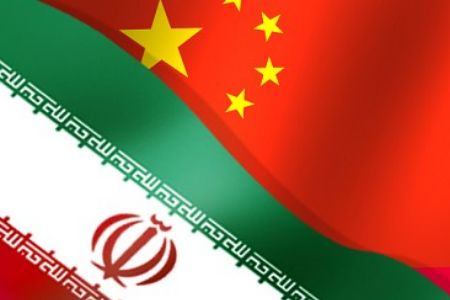

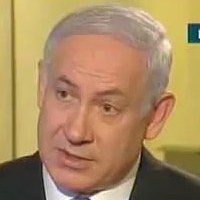
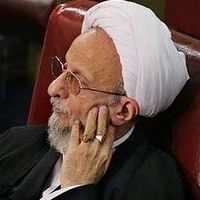
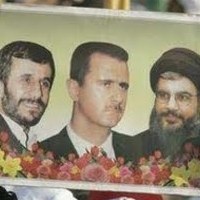
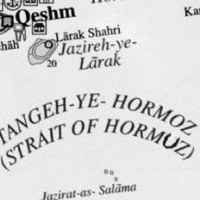
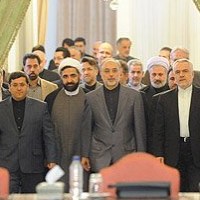




WikiLeaks: China’s approach to Iran’s nuclear (weapons) program triggers concerns | Middle East, Isr http://t.co/400N6Uqe
WikiLeaks: China’s approach to Iran’s nuclear (weapons) program triggers concerns | Middle East, Isr http://t.co/400N6Uqe
njslea WikiLeaks: China's approach to Iran's nuclear (weapons) program …: He acknowledged that… http://t.co/CxCbapto thejerichomarch